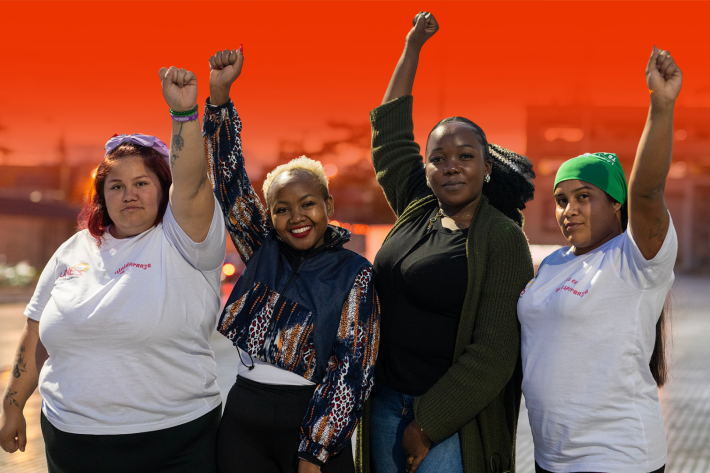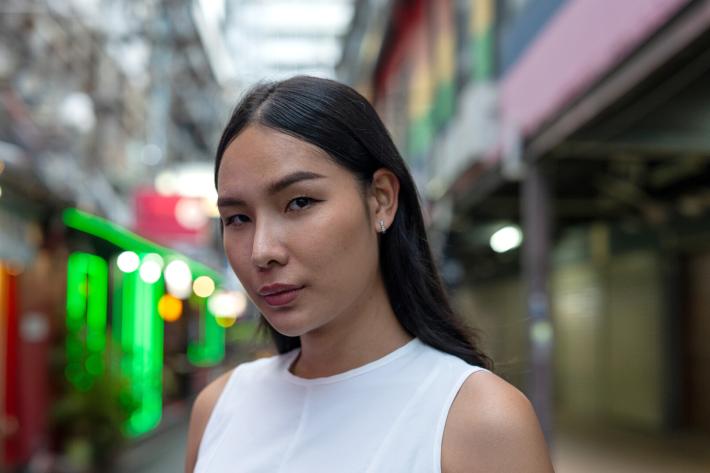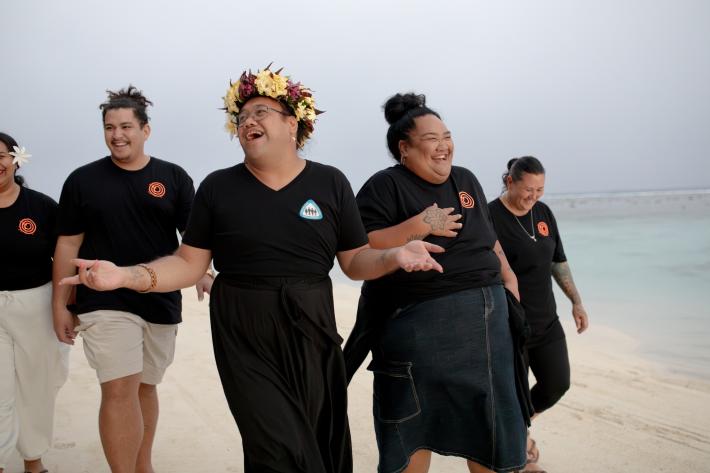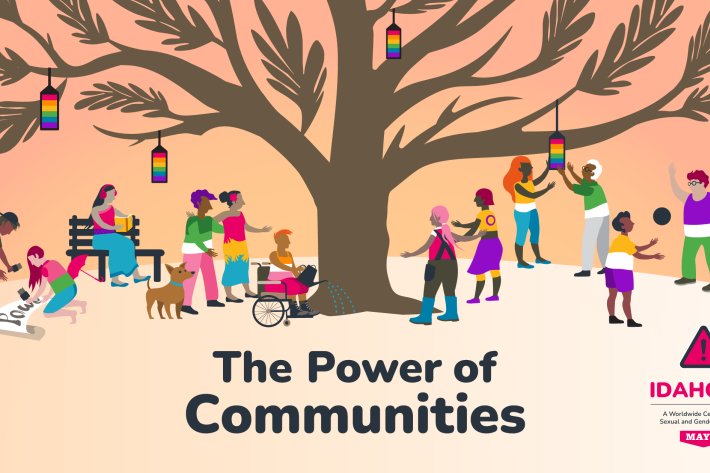
Spotlight
A selection of news from across the Federation
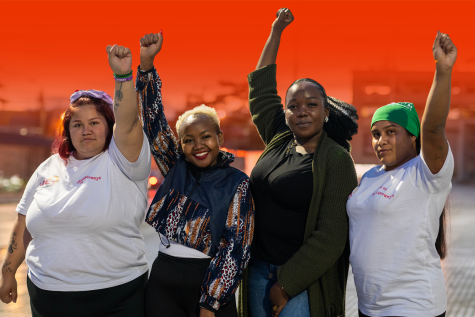
We Made It a Charter: IPPF’s Declaration of Values
Proud, bold, and united: we are values-led.
Filter our news by:


| 30 January 2025
IPPF, ILGA World, and Amnesty International: Fighting Back Against Trump Administration's Anti-Rights Agenda
The new President of the United States is now unveiling his plan to dismantle progress and implement a violent and discriminatory society, all of which have been designed to reverse human rights wins. Between 20 and 29 January, 2025, Donald Trump announced a series of presidential actions, aimed at scaling up attacks toward every individual's right to decide over their own body, identity, and life. The plan of the Trump administration was detailed in the "Project 2025": A society where women lose their rights and freedoms and are reduced to reproductive and domestic labour; A society where the existence of trans and intersex individuals is denied, and their rights are trampled upon; A society where lesbian, gay, and bisexual individuals are forbidden from the choice to have a family - or not - and live freely in their emotional, sexual and relational lives. We have learnt from years of denouncing and refusing the conditions of the Global Gag Rule, that executive orders expand over political cycles, and we can’t rely on a change in government to wind back the clock. The introduction of the Foreign Aid Executive Order, the Defending Women From Gender Ideology Extremism And Restoring Biological Truth To The Federal Government, and the Reevaluating And Realigning United States Foreign Aid reveal a new level of complexity designed to chill the funding landscape and promote violence against those most discriminated and marginalized. This vision, driven by far-right ideologies, will accelerate gender-based, sexual, and LGBTQI+phobic violence, result in more deaths and restrict long taken for granted human rights. This deadly project is not unique to the American far-right. We see it spreading across the world. We have seen both right-wing and left-wing governments gradually incorporating far-right narratives by denying the rights of trans individuals, migrants, and women. A culture of fear and silence has translated into collusion and complicity. We will stand up and speak out for sexual and reproductive health, rights and justice for ALL. Trans people, women, refugees, and migrants are not the threat. Two consecutive administrations who militarised aid and development followed by the Trump Administrations attacks on identity make the US political establishment the real threat to global peace and progress. Let’s cut through the rhetoric and name the Trump Administration's actions for what they are: Attacking the rights of trans and intersex individuals is attacking women’s rights. Deporting migrants leads to misery and death for at risk or targeted populations. Forcibly transferring incarcerated trans women to men’s prisons amounts to risking their lives Cutting funding to the World Health Organization, UNFPA and others makes us vulnerable to pandemics, and cuts off healthcare to everyone, including Americans. Blocking funding for sexual and reproductive health organizations increases the amount of abortions, but makes them less safe, resulting in pregnant people dying. Denying trans adolescents access to healthcare leaves children to suffer, more than 1.8 million LGBTQ+ young people (ages 13-24) seriously consider suicide each year in the U.S. — and at least one attempts suicide every 45 seconds. Increasing militarization and occupation results in more attacks against health care workers and the destruction of service sites makes progress impossible. Withdrawing from the Paris Agreement contributes to an increase in natural disasters and humanitarian crises, where most unsafe abortions happen. The far-right’s program leads to the death of women, LGBTQI+ individuals, migrants, the poor, and other oppressed groups. To combat this destructive societal vision, our organizations call for the unity of progressive movements: We urge governments to stop enabling anti-rights narratives: let women, trans, intersex and non-binary individuals, and migrants live with dignity. Respect our human rights. Defend our human rights. Condemn governments that attack us. We welcome political and climate refugees. We call on feminist organizations, defenders of sexual rights, LGBTQI+ advocates, environmentalists, and ALL human rights defenders: build bridges between our struggles. Keep showing up as part of the wider liberation struggle. To organizations with privileged access to places of power like us: use this privilege to amplify the struggles of those absent from the negotiation table. Elevate the voice of the people who are directly targeted. To keep fighting for the end of colonisation and occupation. We speak out against the militarization of our health service scopes, and the killing of health care workers and patients. Finally, to individuals and activists who follow us, who defend our causes, who demonstrate, share our messages on social media, and support us financially: thank you. You are not alone. Join us. Let’s come together and fight back and win.

| 10 November 2022
Sexual and reproductive justice to deliver the Nairobi commitments
Today, the International Planned Parenthood Federation (IPPF) is helping launch the second report of the High-Level Commission on the Nairobi Summit, also known as the International Conference on Population and Development 25 (ICPD 25). The Commission is an independent advisory board comprised of 26 members from different sectors tasked with monitoring progress on the ICPD Programme of Action and Nairobi Summit Commitments. The programme of action contains commitments from 179 countries to put the rights, needs and aspirations of individual human beings at the centre of sustainable development, part of which includes achieving universal access to sexual and reproductive health for all. The report - ‘Sexual and reproductive justice as the vehicle to deliver the Nairobi Summit commitments’ - highlights sexual and reproductive justice as the key to the realization of the Nairobi Summit commitments. Sexual and reproductive justice is a universal concept. It includes the right to have or not have children, the right to parent one’s children in safe and sustainable environments, and the right to sexual autonomy and gender freedom. Monitoring the implementation of life-saving sexual and reproductive health and gender-responsive services is crucial to ensure accountability and human rights for all. However, while some progress has been made, many barriers persist, and millions worldwide still do not realize their sexual and reproductive rights. Progress on Nairobi Summit Commitments: Numerous country commitments made at the Nairobi Summit align with a sexual and reproductive justice framework. They pay explicit attention to marginalized and vulnerable populations, notably people with disabilities, refugees, migrants (particularly migrant women), young people and older persons. Indigenous peoples, people of African descent and other ethnic minority groups have received less attention. A slew of new reproductive rights legislation followed the Nairobi Summit, suggesting a basis for a sexual and reproductive justice framework. The high number of commitments prioritizing sexual and gender-based violence offers a powerful entry point for promoting sexual and reproductive justice. On the Summit’s Global Commitments, some improvement is evident in meeting unmet need for family planning. But no region has registered positive movement towards zero preventable maternal deaths. Greater access to family planning has yet to translate into better maternal health outcomes. There is some progress in offering comprehensive and age-responsive information and education on sexuality and reproduction and adolescent-friendly, comprehensive, quality and timely services. Certain regions and countries have advanced in providing timely, quality and disaggregated data. More must be done, but this creates opportunities for ensuring that data capture intersecting challenges and are used to inform laws, policies and programmes. Domestic and international finance is critical to sexual and reproductive justice but persistently lags commitments. More than 4 billion people globally will lack access to at least one key sexual and reproductive health service during their lives Dr Alvaro Bermejo, Director-General for the International Planned Parenthood Federation, said:

| 08 September 2022
IPPF launches new and improved Medical Abortion Commodities Database
The International Planned Parenthood Federation has redeveloped and relaunched its Medical Abortion Commodities Database. The updated site was designed to be more user-friendly with improved accessibility on both desktop and mobile devices. MedAb.org is the only public source of information on country-level availability of quality medical abortion commodities. Launched in September 2018, MedAb.org has filled a knowledge gap and has been a reliable source of information on availability of quality medical abortion products at country level for four years. The site currently contains product information for 102 countries, including 22 brands of misoprostol, 44 brands of mifepristone and 15 brands of combipacks. In 2021, site use grew significantly, with more than 30,000 active users, so IPPF undertook multiple analyses to understand more about these users. We redesigned the site to improve user experience for a broader range of user types, including researchers and academics. With more than half of site users identifying as individuals seeking abortion care, we improved signposting to trusted partners so they can access reliable and timely information. Catherine Kilfedder, IPPF’s Senior Programme Adviser, Abortion, said: “We needed to rebuild our site to improve technical functionality, but we saw an opportunity to simultaneously improve user experience. We embarked on a human-centred design project to understand our users and design a site to better meet their needs.” Site use continues to grow, with more than 50,000 active users in the first eight months of 2022, and IPPF is thrilled to respond to this growing user base with a new and improved MedAb.org.

| 24 June 2022
As the US Supreme Court overturns Roe v. Wade, global healthcare organizations call on all governments to defend access to safe and quality abortion care
Ensuring access to safe, quality abortion is an imperative. Abortion is recognised as essential health care that must be provided by governments. Access to safe abortion is also a human right. Attacks against reproductive freedom are attacks on democracy and international human rights standards, on individual freedoms and the right to privacy, and they set back progress towards gender equality. The United States Supreme Court decision to dismantle Roe v Wade and roll back 50 years of access to safe abortion care is a catastrophic blow to the lives of millions of women, girls and pregnant people who now face the prospect of being forced to continue pregnancies. It is a decision that will cost lives for years to come. The US joins just a handful of countries that have actively reduced access to abortion care in recent years. This is out of step with the global community’s commitment to advance human rights and fails to take into account the overwhelming global medical evidence that supports abortion as essential health care. Around the world, progress is being made to remove restrictions to care for example Latin America’s ‘green wave’ (Mexico, Argentina, Colombia, Chile) in Africa (Benin, Mozambique, Kenya), Asia and the Pacific (Thailand, South Korea, Australia, New Zealand) and Europe (France, Ireland, England). Governments are responding to feminist grassroots movements and acting upon evidence-based findings and World Health Organization (WHO) guidelines that draw on clinical and technological advancements, including telemedicine and self-management of abortion care, in order to guarantee their populations’ rights to essential health care. As organizations dedicated to providing and supporting health care, we know that restrictive laws do not reduce the need for abortion care. Rather, such laws increase inequities in access; nurture an environment of fear, stigmatisation and criminalisation; and put women, girls and pregnant people at risk. Abortion laws not based on scientific evidence harm health care workers. Countries with total bans or highly restrictive abortion law prevent and criminalise the provision of essential health care services and support to those that require abortion care. Many individuals supporting abortion care experience abuse, threats and even violence. In the United States, such incidents are commonplace and have even resulted in the murder of health care professionals. Further isolating these dedicated health care workers with restrictive laws will put them at even greater risk. Lack of access to safe abortion care is one of the leading causes of preventable maternal death and disability. Each year 47,000 women in the world die as a result of unsafe abortion and an estimated five million are hospitalised for the treatment of serious complications such as bleeding or infection. Supporting safe and high-quality abortion care is a demonstration of a government’s commitment to reproductive and social justice. Abortion care is an integral part of comprehensive health care provision – the need for this care will not go away. Limiting access to abortion care takes the greatest toll on the lives of women, girls and pregnant people; those living in poverty; those with marginalised racial, ethnic identities; adolescents; and those living in rural areas. A denial of abortion care further exacerbates their historical discrimination and mistreatment, and places them at the greatest risk of preventable maternal death and disability. As national, regional and global health care organizations, we urge all governments to take immediate action to: Create and protect legal and regulatory environments that support health care professionals to provide access to safe and affordable abortion care. Access to abortion care should be protected and supported as an inalienable reproductive right. Decriminalise abortion care and regulate it like any other health care provision. Decriminalising abortion refers to the removal of specific criminal and/or civil sanctions against abortion from the law, so that no one is punished for having, providing or supporting access to abortion. Utilise the full benefit of the safety and efficacy of abortion medication, as well as the advancement of technology, to allow telemedicine and self-management access to abortion, as recommended by the WHO Abortion Care Guideline. Invest in robust health systems that are human rights-centred for abortion care information, counselling and services. Prioritise training on abortion care as an essential part of professional development for health care professionals – integrate it into lifelong learning to ensure health services are universally available. Such approaches should be linked to reproductive and social justice movements, and should include actions that address the needs and rights of communities that have been historically discriminated against. Want to take action? Endorse this global statement condemning the Roe v. Wade decision Main image by Gayatri Malhotra on Unsplash
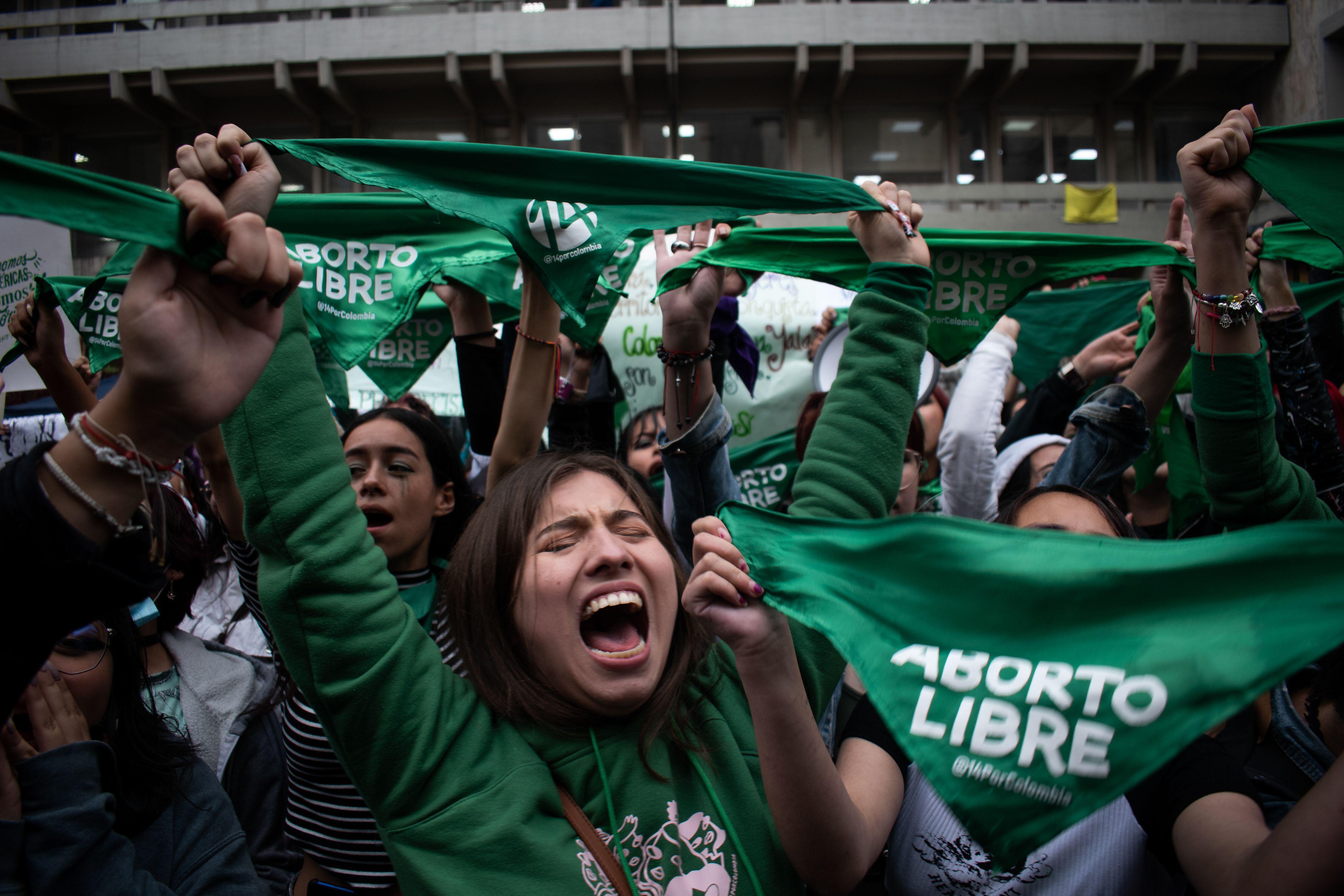
| 22 February 2022
Colombia decriminalizes abortion
The Colombian Constitutional Court has decriminalized abortion up to 24 weeks in another victory for the Green Wave sweeping through Latin America. The historic decision follows years of campaigning by women's right's activists across Colombia and came off the back of two lawsuits that asked the court to declare article 122 of the penal code, that "the woman who causes her abortion or allows another to cause it, will incur a prison sentence from sixteen (16) to fifty-four (54) months" as unconstitutional. Having delayed several times over the past two years, the court called an extraordinary meeting on Monday 21st February 2022, and took just a few hours to come to its decision - ruling five against four to decriminalize the healthcare procedure. The decision will go into effect immediately. ProFamilia, IPPF's Member Association in Colombia, and Colombia's largest provider of legal abortion care was heavily involved in pushing to extend the rights of those needing to access abortion care. Colombia follows other countries in the region such as Mexico and Argentina, while parliamentarians in Ecuador last week eased regulations to allow access to abortion in cases of rape. Marta Royo, Executive Director for Profamilia, IPPF's Member Association in Colombia, said: "Today is a ground-breaking moment for the people of Colombia and a long-overdue guarantee of reproductive rights and dignity for all those who need abortion care, especially poor and rural women who bear the brunt of restrictive abortion policies. "The decriminalization of abortion up to 24 weeks in Colombia and the Green Wave movement across Latin America is centred not just on public health, but also the full lives, citizenship and human rights of girls, adolescents, and women – who, for multiple reasons, including inequity, access to education, gender-based violence and barriers to healthcare – continue to face unintended pregnancies. "The freedom for women to finally make their own choices about their pregnancies and their bodies is fundamental to disrupting the cycle of poverty that so many in Colombia face. This monumental decision is also a win for the dedicated health care providers, who will finally be recognized as people who simply care about the needs of others." While Colombian women have supposedly been able to access abortion care since 2006 under three circumstances: if their life or health is at risk, in cases of fatal foetal abnormalities, or if the pregnancy is the by-product of rape or incest, in reality, the criminalization of abortion persisted. The Guttmacher Institute found that less than one per cent of the estimated 400,000 abortions carried out each year in Colombia are performed legally, with women, especially poor, rural, vulnerable and marginalized women, facing significant barriers to accessing safe and timely abortion care. Many Colombian women are instead forced to carry their pregnancies to term or else seek other methods to end them. Figures collected by ProFamilia showed that during 2020, there were at least 26,223 unsafe abortions across Colombia, a startling amount for which consequences range from infection to life-changing injuries to death. As per the previous abortion law, other women have been imprisoned for up to four and a half years for having an abortion, even in cases where abortion should have been legal. In a shocking example of discrimination, data collected showed that poor rural women were more likely to be charged, with a third of those who faced charges also survivors of sexual violence. Eugenia Lopez Uribe, IPPF's Regional Director for Americas and the Caribbean Region, said: "Today Colombia took another step in the right direction for gender equality and full human rights for all, and we are incredibly proud of IPPF's Member Association, ProFamilia, for their tireless work alongside thousands of activists across Colombia and Latin America "This 24-week decriminalization is historic in the region and especially remarkable when we consider the current fragility of abortion rights globally and the anti-choice movements which continue to plague nations across the world, including in countries close to home like the United States of America. "While today we are celebrating this historic decision, the Green Wave is strong and growing, and the fight for reproductive rights and justice will not end until every person can access high-quality sexual and reproductive healthcare when and where they need it."
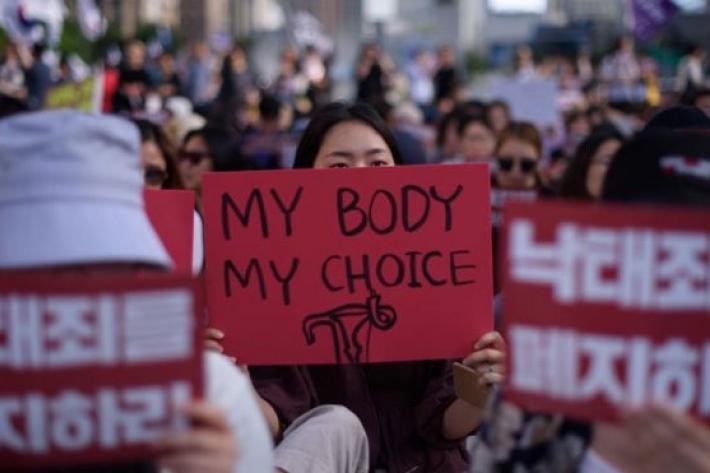
| 05 January 2021
A win for women's rights: South Korea decriminalizes abortion care
The International Planned Parenthood Federation welcomes the news of the removal of abortion care from South Korea’s Criminal Code effective from 1 January 2021. This means those seeking abortion care will no longer face legal barriers in accessing care. Abortion in South Korea was illegal in most circumstances from 1953 to 2020. On April 11, 2019, the Constitutional Court ruled the abortion ban unconstitutional and ordered the law's revision by the end of 2020. Revisions to the law were proposed in October 2020, but not voted on by the deadline of 31 December 2020. The Ministry of Health and Welfare announced that they will consider expanding coverage of health insurance to include abortion care and the approval of mifepristone (used in medical abortion). IPPF’s Director-General, Dr Alvaro Bermejo said: “Abortion care is a human right, and those rights are now being realized in countries with some of the strictest abortion laws. The decision to remove abortion from South Korea’s criminal code is a step in the right direction for women’s rights, but we also know there is much work to do. ‘Conscientious objection’ cannot be allowed to limit access to abortion care. IPPF and its Member Associations will continue to fight for safe and legal abortion care for those who need it.” Ms Kyung Ae Cho, Secretary-General, Korea Population, Health and Welfare Association (KoPHWA) said: “I am pleased that we reached here today [repeal of the criminal provision on abortion] as a result of many years of efforts led by Korean women. "With these changes, law amendments and services are urgently needed, including expanding Universal Health Coverage (UHC), to ensure equal access to reproductive healthcare for all women. We [KoPHWA) shall continue to deliver accurate and rights-based information and counselling on safe abortion care appropriate to the Korean women context, and contribute to the fulfilment of universal access to sexual and reproductive health for all women worldwide.”

| 12 July 2019
Sky News drops term “heartbeat bill” after healthcare coalition call
Sky News says it will stop using the term “heartbeat bill” to describe attempts in the US to introduce six-week abortion bans, after conceding the phrase is biased. A coalition of five leading reproductive healthcare organizations – the Federation of Gynecologists and Obstetricians (FIGO), International Planned Parenthood Federation (IPPF), Marie Stopes International (MSI), Planned Parenthood Federation of America (PPFA) and the Royal College of Obstericians and Gynaecologists (RCOG) wrote to Sky News about its use of the phrase. It pointed out that both RCOG and the American College of Obstericians and Gynecologists had stated clearly the phrase was medically inaccurate, and that the language was partial, coined by opponents of access to safe and legal abortion to frame the debate on their own terms. The alliance also pointed out that other media, such as The Guardian, had already announced it would drop the description. Sky News consulted its US team before telling the coalition that it would stop using the term. In his reply Sky’s Head of Home News, Peter Lowe, said: “We agree that the term “heartbeat bill” is not an impartial expression, but designed to support a particular point of view…our plan would be to adopt “Six week abortion ban”, or similar phrase.” IPPF Director-General Dr Alvaro Bermejo said: “We’re very grateful that a news organization with the reach and reputation of Sky News has thought so hard about its use of language and decided to stop using this medically inaccurate and biased phrase. Words matter, and all journalists need to pause, think and avoid simply parroting terms designed to skew opinion, especially when they are – as in this case – medically wrong as well as partial. It’s up to major news providers, who make much of the trust placed in them by audiences and their commitment to impartiality, to see through these attempts by opponents of access to safe and legal abortion to play them.” Sky News’ move follows a decision by BBC News not to rule out using the phrase, because it was already “in common usage.” Dr Bermejo said: “Sky News’ decision shows that news does not have to simply follow where it is led. We would ask BBC News to think again about its reluctance to rule out using partial language.” The group also contacted ITV News and received an assurance from Rachel Corp, its Acting Editor, that if it used “heartbeat bill” at all, it would make clear it was a biased phrase. She said: “We would always aim to make clear the phrase is being used by those campaigning against abortion and would attribute it to them.” Channel 4 News, which does not appear to have used the term, said it had told all its journalists to be aware of the issues it raised. Ben de Pear, Editor of Channel 4 News said: “I note the point you have raised over the use of this term…We have notified editorial staff of the nature of this debate and the particular issues raised by this legislation.” The coalition thanked Sky News, ITV News and Channel 4 News for thinking carefully about the impact of their language. It also confirmed it would contact the BBC’s Director General, Lord Hall, to ask for a meeting about the issue, as BBC News appeared to be out of step with other broadcasters. NOTES: Sky News is available in 127 countries and 102 million homes, according to Sky News International. It is the current RTS News Channel of the Year.
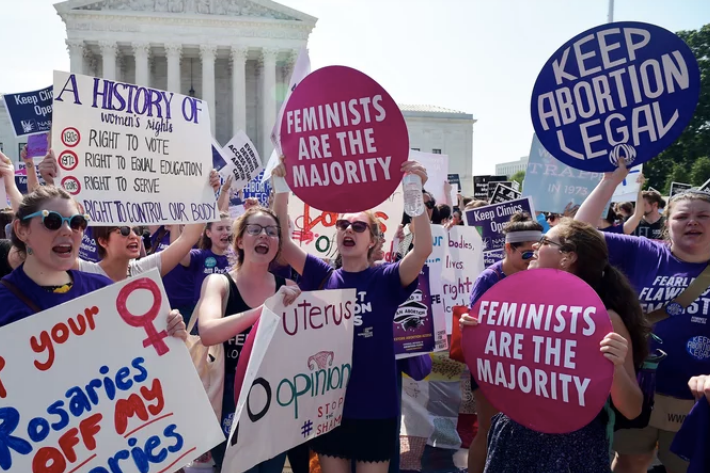
| 26 June 2019
BBC refuses to stop using medically inaccurate and biased language on abortion
The BBC has said it won’t stop labelling attempts to ban abortion after six weeks as “heartbeat bills” – despite conceding the phrase is biased and medically inaccurate. A coalition of four leading reproductive healthcare organisations – the Federation of Gynecologists and Obstetricians (FIGO), International Planned Parenthood Federation (IPPF), Marie Stopes International (MSI) and Planned Parenthood Federation of America (PPFA) wrote to the BBC, demanding it stop using the phrase in its coverage of attempts in some US states to introduce six week abortion bans. In its letter, the coalition pointed out: This description is biased, coined by opponents of safe and legal abortion in an attempt to frame the debate in their own emotional and empathetic terms. The American College of Obstetricians and Gynecologists (ACOG) has stated clearly that the phrase is medically inaccurate. Other news organisations, such as The Guardian, have already announced they would stop using the phrase and replace it with the factual “six-week abortion ban” Adding the words “so-called” or placing the phrase in parenthesises does not address the bias. In her reply, Fran Unsworth, BBC Director of News and Current Affairs said: “I quite understand the point you make about the use of the phrase “heartbeat bill” and we would not aim to adopt it as our own description of the legislation.” But she went on to say the term was “now in common usage” and the BBC would not stop using it. Dr Alvaro Bermejo, Director General, International Planned Parenthood Federation, said: “The BBC can’t concede “heartbeat bill” is a biased and medically inaccurate description and then say it’s going to use it anyway. Saying it is “in common usage” is no excuse, especially when the BBC – which boasted only last week that it has a global weekly audience of 426 million people – shares the blame for spreading it. Language around legal abortion has been weaponised by those who want to deny women access to it and journalists – especially those who work for a news organisation which claims to be impartial and trusted – must wake-up and see they are being played. This phrase was chosen very carefully by people who want to end access to legal abortion and who are exploiting the mainstream media to insert biased language into the common vernacular. It’s designed to hide the devastating impact on women of their plans and skew coverage. The right thing to do is to stop using it. We call on the BBC to think again.” Simon Cooke, Chief Executive Officer, Marie Stopes International, commented: “We are frustrated and disappointed by the BBC’s decision to continue to amplify a phrase which is not only medically inaccurate and overtly emotive, but which can put women’s health and lives at very real risk by increasing stigma. To fall back on ‘common usage’ as a defence legitimises and normalises anti-abortion rhetoric and further extends the chilling effect of restrictive anti-choice policies and views, especially when used by a globally respected and trusted media organisation such as the BBC. It’s sad to see antiabortionists so easily able to manipulate the mainstream media for their own ends.” Dr Leana Wen, President and CEO, Planned Parenthood Federation of America said: “As a physician, I know just how critical it is for people to have the most accurate information about their health care. At this moment when our rights and freedoms are under unprecedented assault, now more than ever, we must stand up to dangerous misinformation. As scientists and public health leaders, we have a responsibility to stand up and reject misleading rhetoric and we call on the BBC to adopt medically accurate and unbiased language.” For more information contact Tia Jeewa at IPPF on 0207 939 8227, or email tjeewa@ippf.org
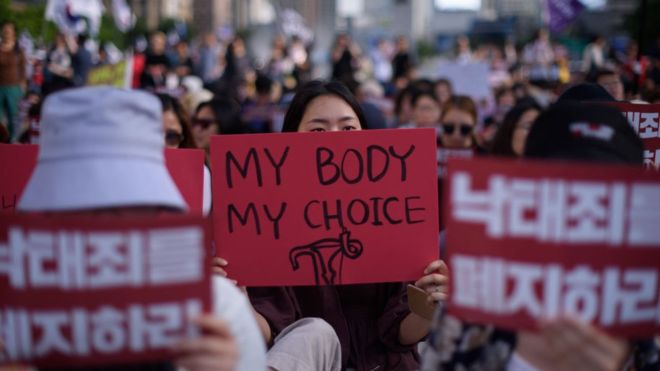
| 11 April 2019
IPPF welcomes South Korea's historic decision to overturn abortion ban
The International Planned Parenthood Federation (IPPF) has welcomed the historic decision made by the South Korean Constitutional Court today overturning a decades-long ban on access to abortion. The court has ordered that the law must be revised before the end of 2020. The current ban – in place since 1953 – criminalises abortion except in cases of rape, incest or risk to health. Women who have abortions and doctors who perform them can be jailed. Dr Alvaro Bermejo, Director General of IPPF said; “This is wonderful news. No women or girl should be coerced through a full pregnancy against her will and no medical professional criminalised for giving care. Extreme laws only fuel unsafe abortions which kill and injury women. I congratulate all the activists, particularly the Korean Women’s Association United, to which the Korea Population Health and Welfare Association (KOPHWA) – IPPF’s Member Association in South Korea – is related, for their united movement and successful advocacy for this change. We are keen to support Korea’s process to put this decision into practice as soon as possible. IPPF has experience of working in countries where similar historic change is taking place, such as Ireland. As a global federation of Member Associations, we can offer support experience and knowledge.” Ms Kyung Ae Cho, Secretary General of KOPHWA said; "It is a moment of momentum for women's health and reproductive health rights. We need systematic efforts to provide Integrated sexual health and reproductive health services for women's health in the future."
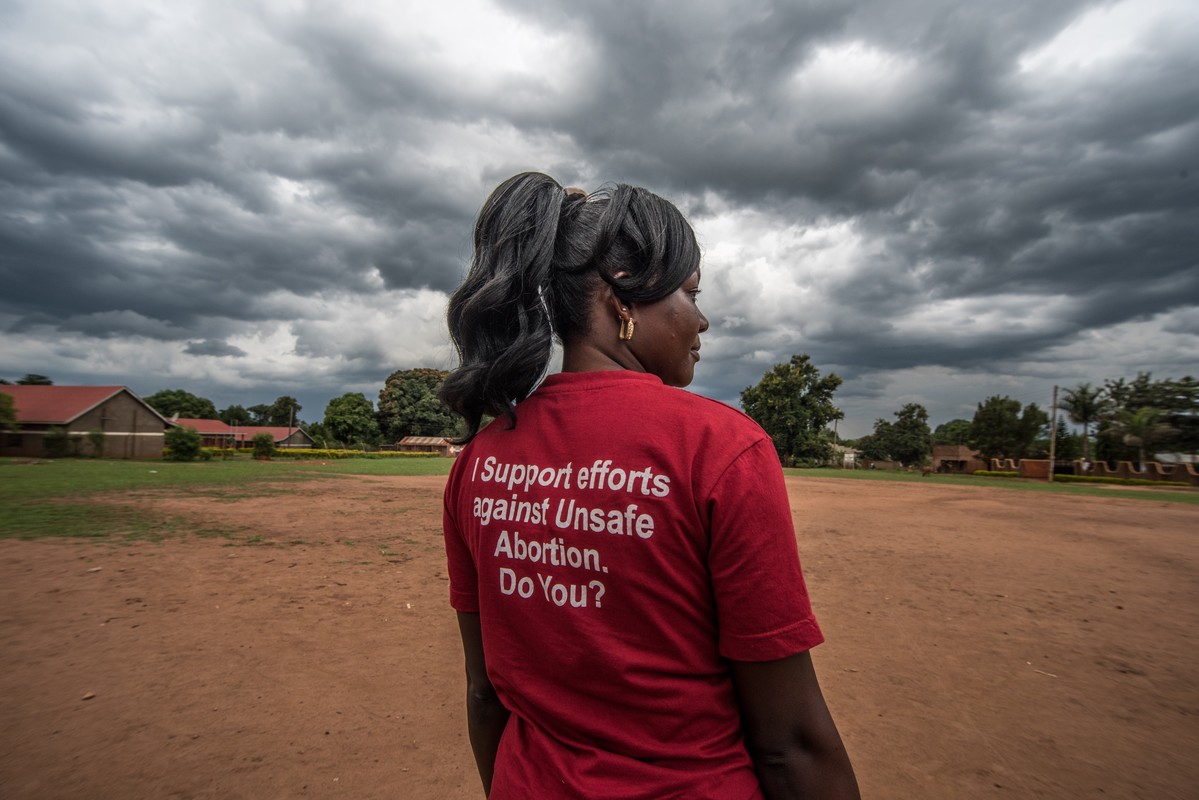
| 28 September 2018
Radical scale up of medical abortion needed globally urges new IPPF report
International Planned Parenthood Federation (IPPF) today launched a new report on global medical abortion access as an urgent call to action. The Her in Charge report presses governments, health, academic and NGO sectors to take immediate steps to stop women from dying and suffering disabilities due to an unsafe abortion by radically scaling up medical abortion efforts. Nearly one in every two abortions that occur is unsafe – 25 million women each year are forced to find their own, often dangerous, solutions to an unintended pregnancy. The knowledge, the technology, and the experience to make all abortions safe abortions exist. Yet tens of millions of women each year still lack access to completely safe abortions. Medical abortion – the use of the medicines misoprostol alone or in combination with mifepristone to opt out of a pregnancy – is safe, cheap and simple to administer. Dr Alvaro Bermejo, IPPF Director General said: “Medical abortion is not new, but its full potential has not been reached due to the lack of action and prioritisation by governments, donors, medical professionals and private and civil society health providers. The fact we’ve had this technology for so long but is still not as accessible, is a global tragedy. The report shows that medical abortion has the potential to revolutionise the delivery of safe abortion globally. Without medical abortion, women are denied proper care.They should not be forced to take risks with their health. For all abortions to be a safe abortion, action is needed now”. IPPF’s Her In Charge report demonstrates how medical abortion access can exponentially increase access to safe abortion, enabling women to be in charge about the decisions about their bodies. An essential part of women’s rights. Medical abortion facilitates task-sharing, which is transformational in low-resource settings where primary-care level and lay workers are trained and equipped to administer abortion. Key recommendations: Governments should create a supportive environment to ensure women can access safe and legal abortion, including the political, social, economic, health and legal frameworks. Medical abortion should be embedded in health systems. Governments can ensure the quality, availability and affordability of medical abortion drugs by registering misoprostol and mifepristone in the list of essential medicines of their countries. Women must be supported by health systems in accessing the information they need to have a medical abortion safely and to access post-abortion care. This includes medical abortion without medical supervision. Health systems should include self-administered medical abortion. Women must have full information about medical abortion risks factors, dosage and have access to post-abortion care and contraception. Women must have all options available to them: either medical or surgical abortion, in a health facility or at home – whatever they prefer. It is their right. The full report can be found here. More information on the 'I decide' campaign can be found here.








